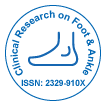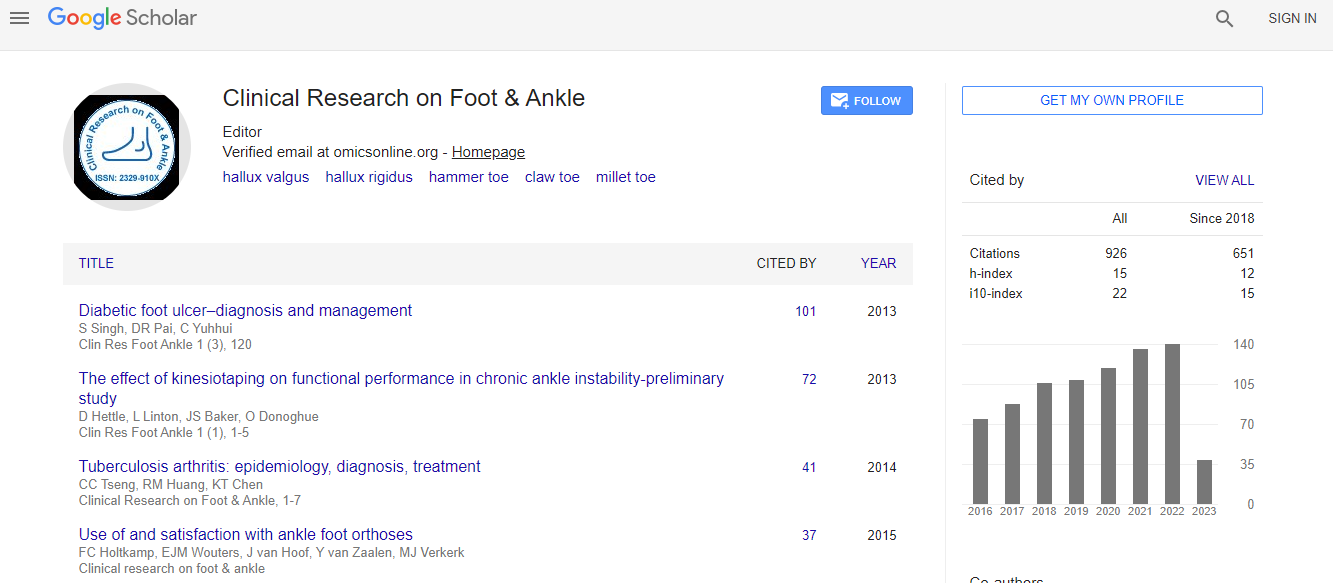Research Article
Scaffold Based Reconstruction of Focal Full Thickness Talar Cartilage Defects
Markus Walther1* and Katja Martin21Center for Foot and Ankle Surgery, Schön Klinik München Harlaching, Harlachingerstr. 51, 81547 Munich / Germany
2clinTEXTpert, Rosenweg 10a, 6340 Baar, Switzerland
- *Corresponding Author:
- Markus Walther
Center for Foot and Ankle Surgery
Schön Klinik München Harlaching
Harlachingerstr. 51, 81547 Munich, Germany
Tel: + 49 89 6211 2041
Fax: + 49 89 6211 2042
E-mail: MWalther@schoen-kliniken.de
Received Date: April 10, 2013; Accepted Date: July 27, 2013; Published Date: July 30, 2013
Citation: Walther M, Martin K (2013) Scaffold Based Reconstruction of Focal Full Thickness Talar Cartilage Defects. Clin Res Foot Ankle 1:115. doi: 10.4172/2329-910X.1000115
Copyright: © 2013 Walther M, et al. This is an open-access article distributed under the terms of the Creative Commons Attribution License, which permits unrestricted use, distribution, and reproduction in any medium, provided the original author and source are credited.
Abstract
Most talar cartilage injuries have a traumatic pathogenesis. They occur as a result of a single or repeated traumatic event. Initially only the cartilage may be damaged by shear stress and may heal, remaining asymptomatic. Often the trauma causes microfractures in the subchondral plate and bone and upon loading, water is forced into the damaged subchondral area by the compressed cartilage, leading to a localized increased flow and fluid pressure. This can cause osteolysis and lead to the formation of subchondral cysts. Deep ankle pain on weight bearing, most probably caused by repetitive high fluid pressure will limit the patients mobility and hence quality of life and needs to be treated.
We describe an emerging and especially cost-effective scaffold-based reconstruction technique for osteochondral defects of the talus-Autologous Matrix-Induced Chondrogenesis (AMIC®)–a promising alternative to Matrix-induced Autologous Chondrocyte Implantation (MACI) and other techniques.

 Spanish
Spanish  Chinese
Chinese  Russian
Russian  German
German  French
French  Japanese
Japanese  Portuguese
Portuguese  Hindi
Hindi 
